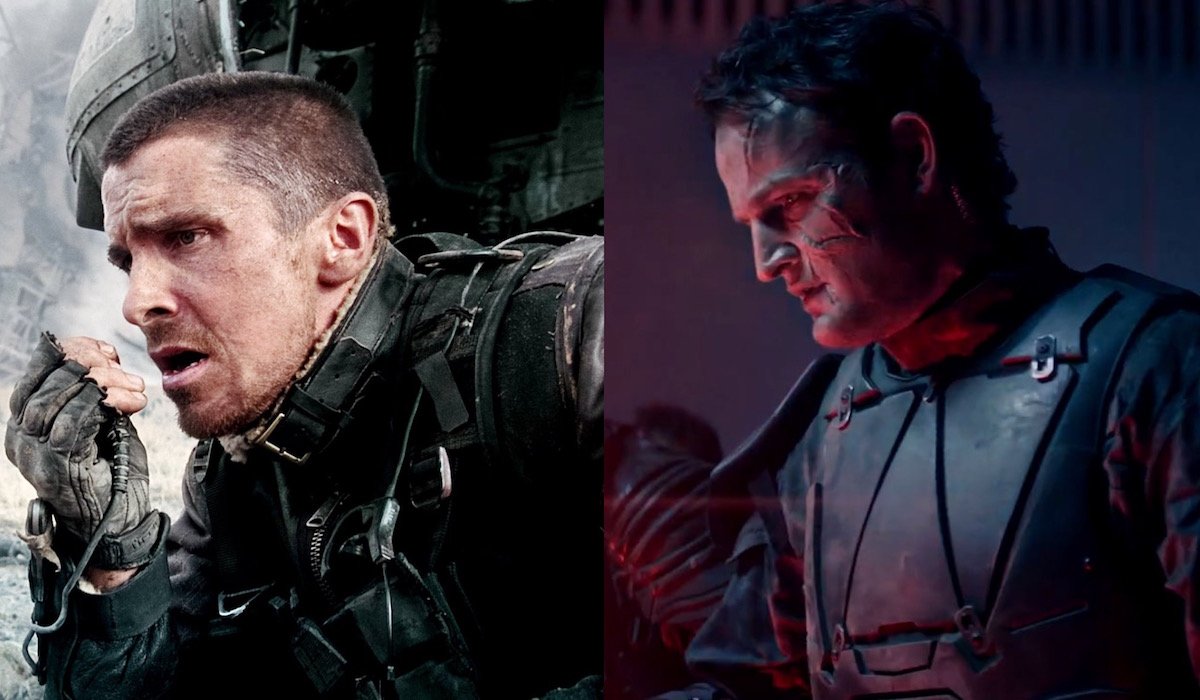Terminator: Dark Fate Succeeds In One Big Way The Recent Sequels Failed

Last weekend saw the release of Terminator: Dark Fate, the sixth installment of the Terminator franchise, but serving only as a sequel to The Terminator and Terminator 2: Judgement Day. While its box office performance is leaving a lot to be desired, Dark Fate is definitely earning more positive critical reception than the two Terminator movies that preceded it, Salvation and Genisys. We could spend all day discussing what Dark Fate does better than those movies, but in my mind, the biggest way it succeeds over them is by not going out of its way to set up a sequel.
That’s not to say that a Terminator: Dark Fate sequel or two hasn’t been considered. On the contrary, James Cameron has said Dark Fate could serve as the first installment of a new trilogy, and there’s certainly enough groundwork that’s laid in the movie that could be followed up on. But Dark Fate also doesn’t leave behind any significant cliffhangers, post-credits scenes or any other kind of teases that indicate to the audience that this particular story will definitely continue, which is a wise course of action given this franchise’s bad luck.

Salvation And Genisys’ Failed Set-Ups For Future Stories
Let’s start by looking at Terminator Salvation, the 2009 movie that serves as both a prequel and a sequel to the previous Terminator movies by following the adult John Connor the then-future 2018. It was definitely indicated that this was just the first chapter of John and the Resistance’s battle against Skynet’s forces on an apocalyptic Earth, as John radioes other Resistance fighters at the end of Salvation to say that while this particular battle was won, the war would continue.
Had things gone according to plan, the Terminator Salvation sequels could have closed out the entire Terminator saga, which would have included bringing Linda Hamilton back as Sarah Connor (remember, in Rise of the Machines, it was revealed she died of cancer) and eventually reaching the final point of the war where the T-800 is sent to kill Sarah Connor in 1984 and Kyle Reese is sent back to protect her. The cyclical timeline would have been completed.
But things most definitely did not go according to plan, as Terminator Salvation was met with primarily negative reviews and only made $371.4 million worldwide. Throw in that The Halcyon Company, which owned the Terminator rights at the time, had to sell the property to pull itself out of bankruptcy, resulting the Salvation sequels being permanently shelved and those stories instead being published as a Dark Horse Comics miniseries a few years later.
Now let’s look at Terminator Genisys, the movie that tried to have its cake and eat it too by serving as a reboot-quel similar to 2009’s Star Trek. Genisys was even bolder with its promise of more movies by ending with a post-credits scene showing that Genisys’ system core survived the explosion that was meant to take it out. Jason Clarke said that had a Genisys sequel moved forward, it would have focused on John Connor’s life after becoming part-machine, as well as explained why Pops (Arnold Schwarzenegger’s older T-800 model) was sent back to protect Sarah Connor as a child.
Terminator Genisys fared even worse than Salvation did critically, ranking at just 26% among critics on Rottem Tomatoes. Commercially it managed to collect $440.6 million worldwide, performing especially well in China, but that still wasn’t enough to justify making more Genisys movies, thus paving the way for Dark Fate and taking the Halloween approach by ignoring certain portions of continuity.
Your Daily Blend of Entertainment News

Dark Fate Functions Well As A Standalone Story
This proved to be the right call, as Terminator: Dark Fate benefits from a more straightforward narrative where one only has to know about what happened in the first two Terminator movies to follow along. More importantly, Dark Fate avoided any teases of future movies and serves nicely as a standalone story.
That’s not to say that Terminator: Dark Fate doesn’t lay any groundwork for more stories afterwards. With the Rev-9 defeated and Carl the T-800 sacrificing itself, Dani Ramos is now partnered with Sarah Connor to prepare for the apocalyptic future still to come, and if a Dark Fate sequel were to get the green light, James Cameron has said it would explore the relationship between humanity and artificial intelligence, as well as finally deliver a resolution to the conflict between humans and machines. One can also logically assume we’d see the origin story of Legion, the A.I. responsible for unleashing the new generation of Terminators.
But unlike Salvation and Genisys, it’s not like it’s absolutely necessary that we see the next chapter of this Terminator arc. Sometimes it’s nice to just leave things to the imagination. After all, Terminator 2 came out seven years after The Terminator, and the latter was still enjoyable enough on its own without people learning about how Skynet came to be. Dark Fate can function the same way if that’s how the cards play out… and it’s looking like they will.

Dark Fate’s Sequel Prospects Aren’t Looking Good
It’s a good thing Terminator: Dark Fate took this standalone approach, because as mentioned earlier, it’s not having the greatest time in theaters. Yes, critical reception towards Dark Fate has been kinder than what Salvation and Genisys earned, but as of this writing, it’s only grossed $125.6 million worldwide, and the movie was made off a budget in the $185-$196 million range. That’s not good at all, and according to The Hollywood Reporter, it could end up losing $120 million for Skydance Media, Paramount Pictures and 20th Century Fox (which is now part of Disney).
Unless things miraculously turn around for Terminator: Dark Fate in its second weekend or these companies are feeling especially generous, it doesn’t look like there will be enough money to warrant two more Dark Fate movies, and that’s okay. We closed out one chapter of the Terminator franchise and watched another one unfold, and it managed to avoid being as critically maligned as its predecessors. That can be considered a win, if not the biggest win.
Frankly, I think that Terminator: Dark Fate’s performance means that the Terminator franchise’s time on the silver screen is over, or at the very least it won’t be resurrected for a decade or longer (hey, it could always give television another shot). But if this is truly the end, at least it went out on a slightly higher note than where things were after Genisys, and didn’t make fans think that sequels would follow in the near future.
Be sure to read CinemaBlend’s review of Terminator: Dark Fate and stay tuned for any major updates regarding the entire franchise. Plan your trips to the theater over the next year with our 2019 release schedule and 2020 release schedule.

Connoisseur of Marvel, DC, Star Wars, John Wick, MonsterVerse and Doctor Who lore, Adam is a Senior Content Producer at CinemaBlend. He started working for the site back in late 2014 writing exclusively comic book movie and TV-related articles, and along with branching out into other genres, he also made the jump to editing. Along with his writing and editing duties, as well as interviewing creative talent from time to time, he also oversees the assignment of movie-related features. He graduated from the University of Oregon with a degree in Journalism, and he’s been sourced numerous times on Wikipedia. He's aware he looks like Harry Potter and Clark Kent.
